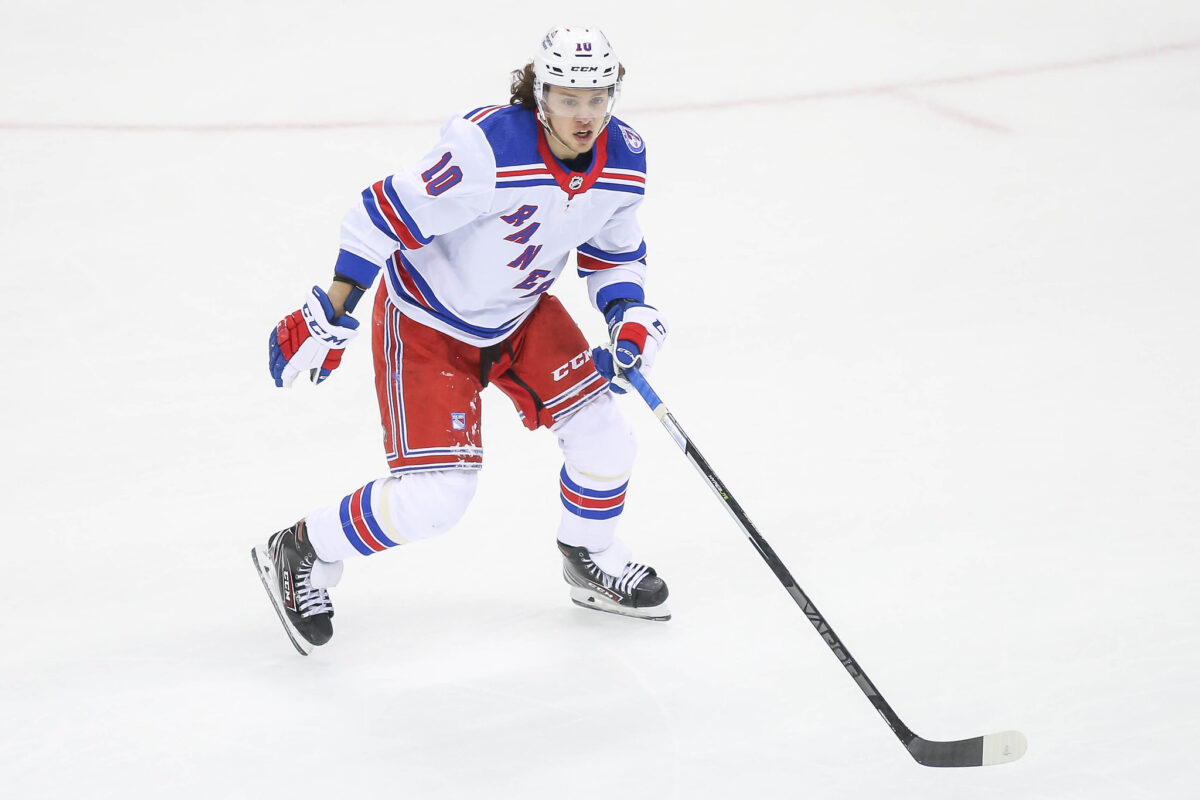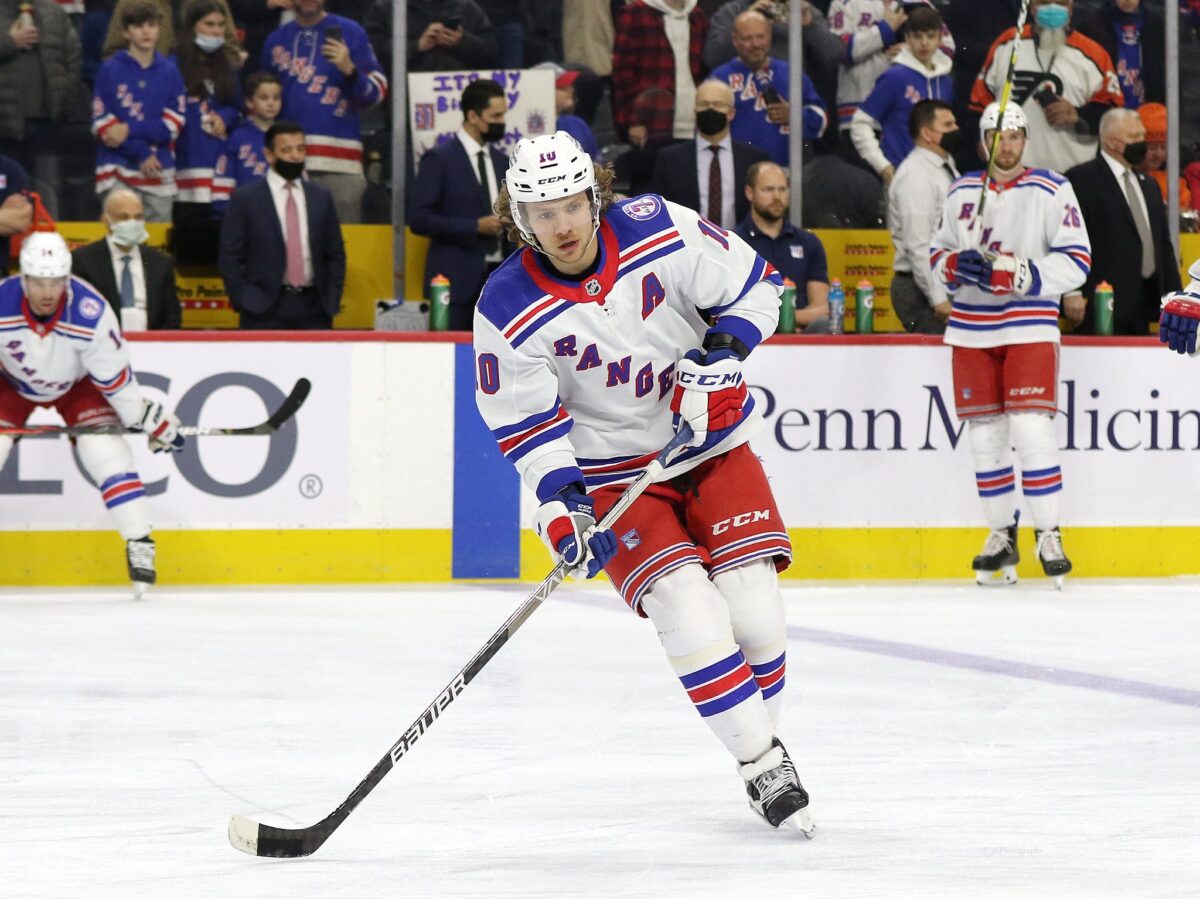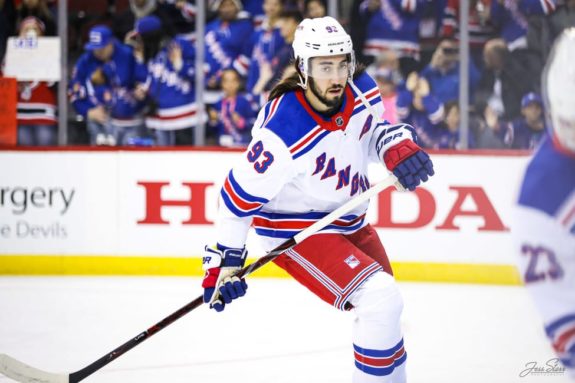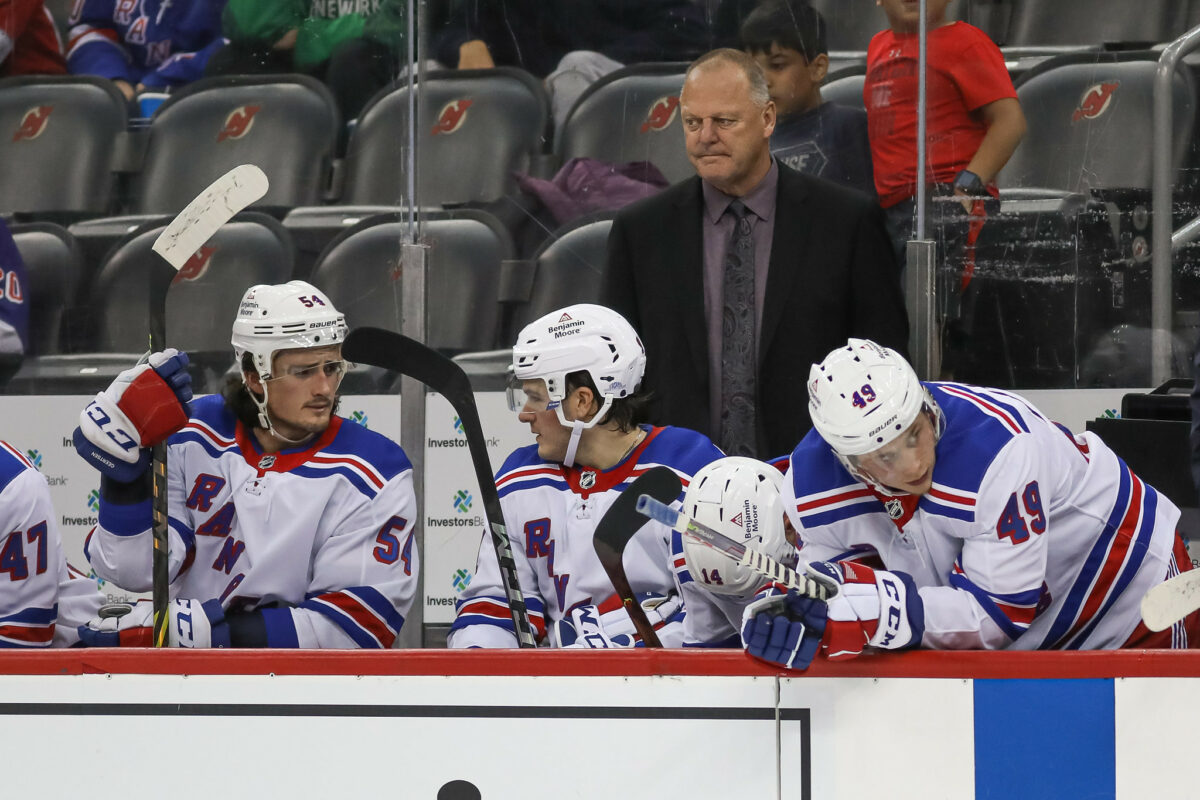The more conservative game plan is stifling Artemi Panarin’s creativity. The Carolina Hurricanes are too quick to the puck, robbing the New York Rangers star of his “bread”-and-butter move in which he sets up on the left side and distributes. The winger hasn’t had the puck as much as a result, and Carolina’s diligent checking has robbed Panarin of passing targets when he does possess it.
All of that may have been true through the first four games of the teams’ increasingly intense second-round series, which the Rangers evened with an impressive 4-1 home victory Tuesday. Those pitfalls, however, need to be overcome by the Blueshirts’ big-money talent – brought to New York in large part to excel in moments such as this – if he wants his team to take the next step into the Eastern Conference Final.

The Rangers have largely managed to match the Hurricanes’ relentless play through four games, admirably blunting their incomparable forecheck enough to give themselves a chance to win in each game. They lost what were essentially two one-goal decisions in the opening contests in Raleigh, falling 2-1 in overtime in Game 1 and allowing an empty-net goal in the final seconds of a 2-0 defeat in Game 2 before prevailing 3-1 in Game 3 at Madison Square Garden.
While their defensive and even-strength play have been more than capable, however, the Blueshirts can’t get by if they play as they did in the first two games on the road, scoring one goal. Not at all coincidentally, Panarin was held off the scoresheet in both, posting a minus-3 rating. Worse yet, he wasn’t markedly better at home. He’s totaled one power-play assist in the series and has been mostly invisible.
That won’t cut it for Panarin or the Rangers, who despite their steadily improving play in the series, will be staring at an early start to their summer if the Breadman can’t rediscover his game.
Hurricanes Have Clamped Down on Panarin’s Imaginative Play
The Rangers have, in fact, relied on a more straightforward, simple approach in order to limit turnovers and stifle the Hurricanes’ lethal transition game. That means few opportunities for Panarin to play the kind of freewheeling, east-west style in the offensive zone which makes him one of the NHL’s most prolific offensive players. The brilliant artist has been painting drywall instead of creating masterpieces.
“I would love to do some stupid s–t on the blue line, but I can’t,” Panarin said before the Game 2 loss Friday, employing a broad stroke of well, color that he’s been unable to use consistently on the ice. (From ‘Rangers’ Conservative Gameplan Hindering Artemi Panarin’s Risk-Taking’, New York Post, 5/20/22)
“I try and play the same way, but sometimes just can’t do that. We played like a team last game. For me, it’s the best two and a half periods probably (for) a team game. Pretty conservative, disciplined, everyone do perfect things, but not enough.”

Another indisputable fact: The Hurricanes have made powering down Panarin a priority, focusing on keeping him from setting up shop along the high left wall – the stupid “stuff” that Panarin was referring to – and hitting trailing teammates with pinpoint passes that lead to prime scoring chances. They’re a team ideally suited to do so, with their quick and conscientious back-checking and in-your-face approach doing wonders to frustrate the player who recorded a career-high 96 points in the regular season, taking time and space away from the lateral game at which Panarin excels in the offensive zone.
It’s a stretch to say Panarin’s game isn’t suited for the grittier, stripped-down style of play that reigns in the NHL playoffs, as he’s recorded 36 points in 41 career postseason contests. Yet the playoffs are also about making adjustments, with the teams and players that can do so being the ones to survive and advance. Without utterly abandoning what makes him so successful, the Rangers need Panarin to find a more effective approach if they want to get past the Metropolitan Division champions.
Related: 5 Matchups the Rangers Need to Overcome the Hurricanes
Already under considerable pressure to start producing, Panarin’s importance is about to exponentially increase with the series shifting back to PNC Arena for Game 5 on Thursday. That’s when Carolina coach Rod Brind’Amour regains the last change, and he’s sure to use it to again send his suffocating checking line of Nino Niederreiter, Jordan Staal and Jesper Fast against the Rangers’ top forward unit of Chris Kreider, Mika Zibanejad and Frank Vatrano.
That Hurricanes eraser completely smothered the Boston Bruins’ top line of Patrice Bergeron, Brad Marchand and Jake DeBrusk/David Pastrnak in the four games in Raleigh in the first round, a matchup that proved to be the difference in that seven-game win. The group did the same to Kreider, Zibanejad and Vatrano in Games 1 and 2, holding the trio without a point. Brind’Amour, though, can’t clone those three players and also match them up against Panarin’s line, which includes Ryan Strome and Andrew Copp.

This exact situation is why Panarin has rarely played with Zibanejad as his center since arriving in New York in the summer of 2019. Panarin being on a separate forward unit gives the Rangers world-class offensive players on their top two lines, and forces opponents to choose which trio should be the focus of their best defensive alignment.
Brind’Amour has wisely chosen Kreider-Zibanejad-Vatrano, which accounted for two goals Tuesday while separated from Carolina’s checking trio, as his primary objective to neutralize. That means Panarin, though he’s hardly going against a group of slouches in Carolina’s top two lines, has to expect to be the dynamic difference-maker he usually is amidst the hostile environment in Raleigh, with he and his linemates free of the shackles that Niederreiter, Staal and Fast put on opponents.
Panarin Will Be the Key to Scoring a Necessary Road Win
If the Rangers’ top line can’t get anything going in that matchup again Thursday – or in a potential Game 7 at PNC – there’s no reason to expect a different road result for the Blueshirts if Panarin remains silent as well.
“I feel bad for Turk,” Panarin said in reference to coach Gerard Gallant. “He’s nervous, he’s got a nervous system.” (From ‘Risk-Averse Rangers Suppressing Artemi Panarin’s Most Valuable Qualities’, New York Post, 2/20/22)
Yes, Gallant’s directive for the playoffs is to minimize turnovers and maximize possession and play in the opponent’s end, a necessity in the postseason when small mistakes are greatly magnified. Yet Panarin can’t be too upset about that system, which allowed him to record his best season in 2021-22.

The Rangers’ $11.6 million-per-year man needs to adapt to all of it, and quickly. The system. The Hurricanes’ checking. The vastly different rhythms of the playoffs as compared to those of the regular season. Panarin’s challenge is to execute the subtle changes that will allow him to thrive, without moving too far away from the incomparably instinctual play that makes him elite, if the Blueshirts are going to break through at PNC Arena. The Hurricanes are 6-0 there in this postseason.
The Rangers imported the Breadman as a free agent three summers ago in part to be a difference-maker in big games, the top talent who could rise above whatever opponents threw at him. The club’s leading scorer had some shaky moments and turnovers in the seven-game first-round victory over the Pittsburgh Penguins, but still finished with three goals and four assists, including the series-clinching tally in overtime.
In this series, against this opponent, the Rangers have never needed Panarin more. A trip to the East Final hangs in the balance.